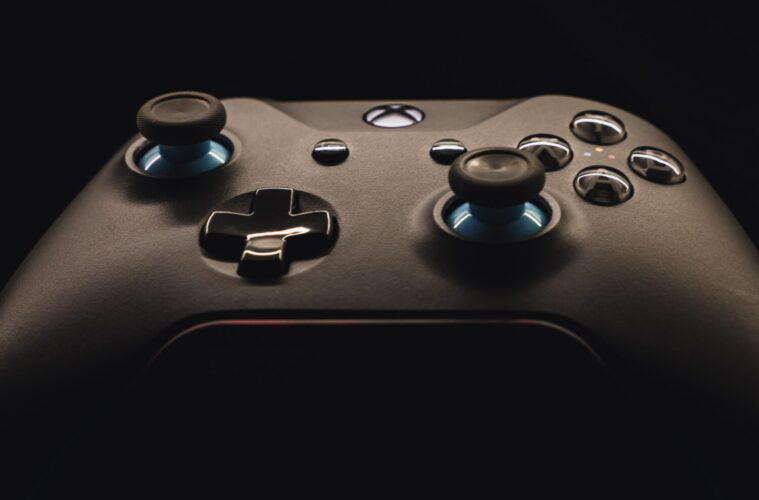Despite international pushback against Microsoft Corp.’s proposed $69 billion acquisition of Blizzard Activision, recent developments suggest the Xbox manufacturer is shifting regulatory opinions of the merger in its favor.
Newly announced licensing agreements with gaming giants Nintendo, NVIDIA, and Ubitus and Boosteroid — a pair of well-known cloud gaming distributors – have given Microsoft some notable industry co-signs.
Now, Microsoft hopes these new partnerships will help the company secure the regulatory trust needed to acquire Blizzard in June.
On Tuesday, Feb. 21, Microsoft announced a new partnership with NVIDIA, a well-known GPU manufacturer, and Nintendo. The 10-year partnership will enable Xbox PC titles to be played across multiple platforms via the NVIDIA GeForce NOW cloud gaming service.
Brad Smith, Microsoft Vice Chair and President, said the overall goal of this new partnership will be to bring titles – specifically mentioning Blizzard’s Call of Duty (CoD) – to Nintendo’s Switch console across the globe via GeForce Now.
The company also has plans to bring Minecraft and other notable games to Chromebooks and Apple operating systems.
Part of the previous concern surrounding the merger piqued around the possibility Microsoft would dominate competition – and eliminate access to competitor titles.
However, these recent partnerships could demonstrate Microsoft would be willing to offer these titles to customers transparently.
During a conference in Brussels coinciding with Microsoft’s announcement on Feb. 21, Smith explained that Microsoft also met with European regulators regarding its proposed purchase of Blizzard Activision.
While Smith did not elaborate about the context of discussions with the European Commission, he did provide more insight to Microsoft’s vision, as it pertains to the merger.
“For us at Microsoft, this has never been about spending $69 billion so that we could acquire titles like Call of Duty and make them less available to people. That’s actually not a great way to turn a $69 billion asset into something that will become more valuable over time,” Smith said. “To the contrary, since day one, we have been focused on one thing, using this acquisition to bring more games to more people on more platforms and devices than ever before, to bring more competition into gaming than ever before. And so, what we’re announcing today is, in fact, true to the roots of the very first day when we announced this acquisition 13 months ago.”
Smith later clarified his remarks via Twitter, adding that the distribution of the CoD franchise would only happen once the Microsoft Blizzard acquisition is approved by regulators.
We want the record to be clear and address any misunderstandings. I’m delighted to repost below this statement and affirm Microsoft’s strong commitment to bring Call of Duty to Nintendo’s customers if our acquisition of Activision Blizzard is approved by regulators. pic.twitter.com/AlsIjwAGEU
— Brad Smith (@BradSmi) February 24, 2023
In terms of opposition, the Federal Trade Commission announced it would seek to block the proposed merger in December. A case summary of the FTC’s administrative complaint indicates the agency is seeking to prevent a lack of industry competition by blocking the proposed merger.
“The agency alleges that the deal would enable Microsoft to suppress competitors to its Xbox gaming consoles and its rapidly growing subscription and cloud-gaming business,” the summary reads.
A FTC evidentiary hearing related to the case is scheduled for Aug. 2.
Sony Interactive Entertainment, the owner of Playstation, has also been opposed to the deal. Sony recently submitted legal findings with the UK-based Competition & Markets Authority that were published on Feb. 22.
Among the complaints filed, Sony was concerned that Microsoft could degrade Call of Duty by raising the price of the game for the Playstation console. Other points of concern for Sony is the possibility that Microsoft would make Call of Duty exclusively available to subscribers.
“Microsoft would be licensing a critical gaming input to its horizontal competitor, and would therefore have a clear incentive to raise the price of Call of Duty to degrade PlayStation’s competitiveness. And there is an obvious economic change in incentive between negotiating with an independent Activision today and an Activision acquired by Microsoft,” notes Sony’s complaint.
Last year, the Competition & Markets Authority reported its own concerns regarding industry competition.
In an eight-page background report on its Phase 1 investigation into the merger, the CMA reported that given the increasing popularity of gaming, the merger could pose a threat to markets.
“After examining a range of evidence, the CMA believes that the merger meets the threshold for reference to an in-depth phase 2 investigation, giving rise to a realistic prospect of a substantial lessening of competition (SLC) in gaming consoles, multi-game subscription services, and cloud gaming services,” the report read.
However, while nothing has been finalized, given Microsoft’s newest partnerships, once-skeptical regulators in Europe are expected to approve Microsoft’s multi-billion dollar purchase as soon as April 25, according to Reuters.
Phil Spencer, who lists “Head of Xbox” in his Twitter bio tweeted optimistically on Wednesday, March 15, regarding the newly acquired partnerships.
Spencer insinuated that it was only a matter of time before Microsoft was able to deliver Activision Blizzard games to its customers.
Microsoft and Ubitus @ubituskk, a leading cloud gaming provider, have signed a 10-year partnership to stream Xbox PC Games as well as Activision Blizzard titles after the acquisition closes. Our commitment is to give more players, more choice.
— Phil Spencer (@XboxP3) March 15, 2023
“Microsoft and Ubitus, a leading cloud gaming provider, have signed a 10-year partnership to stream Xbox PC Games as well as Activision Blizzard titles after the acquisition closes,” Spencer tweeted. “Our commitment is to give more players, more choice.”
This is a developing story.
Advertising disclosure: We may receive compensation for some of the links in our stories. Thank you for supporting Irvine Weekly and our advertisers.

